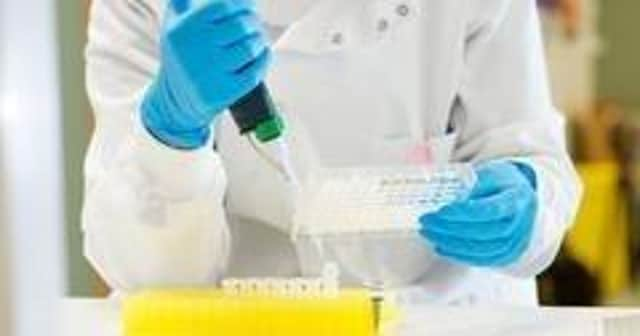Early diagnosis is a crucial factor in surviving cancer - Steve Cardownie


According to the charity 20,000 cancer deaths each year could be avoided if there was more investment in research and innovation, along with positive action to repair the damage to the NHS.
According to the charity the UK survival rates lag behind comparable countries so it wants to see a commitment to develop a 10-year cancer plan, led by a National Cancer Council which would be accountable to the prime minister and would gather together charities, scientific and industry experts as well as representatives of the government.
Advertisement
Hide AdAdvertisement
Hide AdExperts have predicted that there will be half a million new cases diagnosed each year by 2040 so there is an urgent need for additional action to be taken. The charity says that the £1 billion funding gap must be closed and there must be more steps to support disease prevention. Screening programmes to assist early diagnosis in addition to improved tests and treatments are also advocated.
Last September Cancer Research UK announced its largest ever investment in Scotland of up to £123 million. This forms part of a seven-year commitment to the Cancer Research UK Scotland Institute and will be used to support research into new and improved cancer treatments and diagnosis which will, according to Amy Warnock of Charity News, “bolster Scotland as a major global hub for cancer research on an increasingly competitive stage. It will also aid in attracting international research talent to the institute.”
Michelle Mitchell, Chief Executive of Cancer Research UK, said: “With a long heritage of success in finding new ways to tackle cancer in Scotland, the Institute is very much a national centre of excellence and will be key to us achieving our ultimate aim of beating cancer sooner. Its researchers represent some of the best scientists from around the world who have come together to work towards better outcomes for patients today and in the future.”
I was diagnosed with Prostate Cancer five years ago, and despite not having any symptoms, that early diagnosis, where a blood test highlighted a raised Prostate Specific Antigen (PSA) level, proved to be a lifesaver.
Advertisement
Hide AdAdvertisement
Hide AdI was made fully aware that my early diagnosis was a crucial factor in my treatment and my blood test result from yesterday showed a 0.03 per cent PSA level – down from 13.7 per cent when I first had the treatment and which, according to the oncologist at The Western General, means that there are no signs of cancer in my body.
So, no apologies for banging on about it but there are still too few men getting their prostate checked. The NHS advises that, “if you’re aged 50 or over and decide to have your PSA levels tested after talking to a GP, they can arrange for it to be carried out free on the NHS.”
Some GPs are not too keen to recommend one but if you decide that you want it then it has to be arranged – thankfully I did!